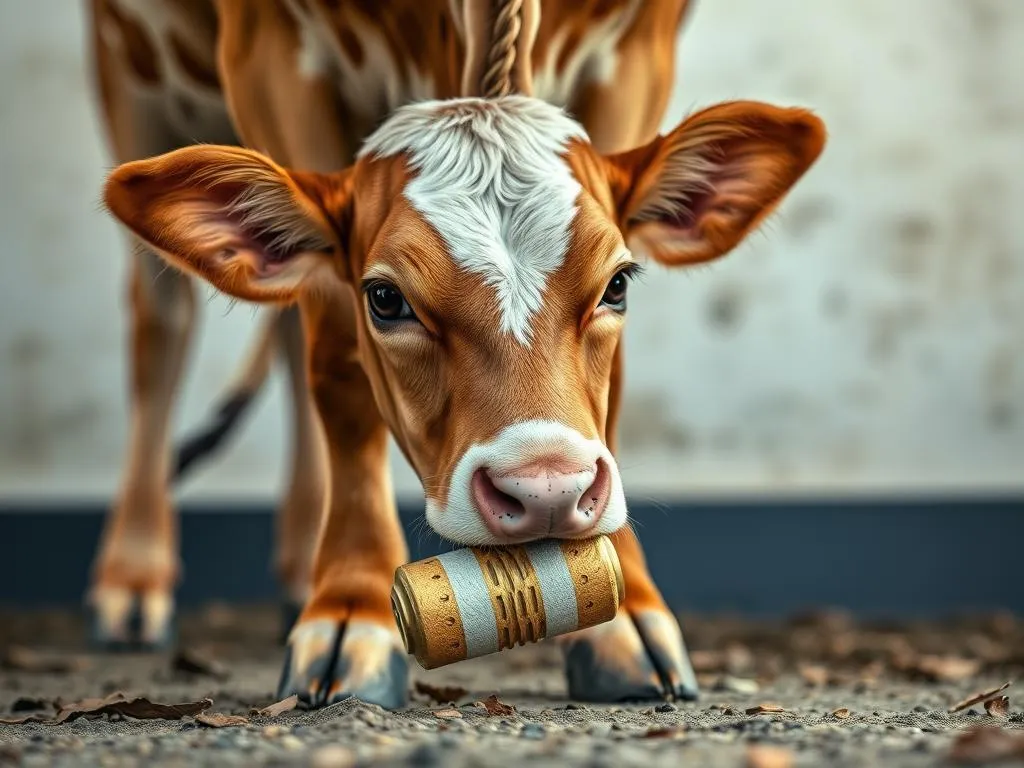
Introduction
Proper dog nutrition is essential for maintaining the health and well-being of our canine companions. With so many treats available, pet owners often wonder about the safety and nutritional value of various options. One such treat that has gained attention is cow hooves. You might be asking yourself, can dogs eat cow hooves? This article delves into the safety, nutritional benefits, and potential risks associated with cow hooves as a dog treat.
Understanding Dog Nutrition
Basic Nutritional Needs of Dogs
Dogs, like humans, require a balanced diet to thrive. Their nutritional needs can be categorized into macronutrients and micronutrients.
-
Macronutrients: These include proteins, fats, and carbohydrates. Proteins are essential for muscle development and overall health. Fats provide energy and aid in nutrient absorption, while carbohydrates serve as a source of quick energy.
-
Micronutrients: Vitamins and minerals play critical roles in various bodily functions, including immune health, bone strength, and cellular processes. Ensuring that your dog receives adequate vitamins A, D, E, K, and B complex is vital for their health.
-
Water: Often overlooked, water is crucial for maintaining hydration and facilitating digestion. Dogs should always have access to fresh water to support their physiological needs.
Common Dog Food Ingredients
When selecting dog food, it’s essential to understand the ingredients. High-quality dog food typically contains whole meats, vegetables, fruits, and grains. Avoid foods that contain fillers, artificial preservatives, and excessive fillers like corn or soy.
Knowing what goes into your dog’s food can help you make informed decisions about additional treats, including cow hooves.
Cow Hooves as a Dog Treat
What Are Cow Hooves?
Cow hooves are the hardened feet of cattle, often cleaned and processed for consumption by dogs. They are usually available in pet stores and online, marketed as a natural chew that can keep dogs entertained while promoting dental health.
Nutritional Value of Cow Hooves
Cow hooves primarily consist of keratin, a protein that forms the structural component of skin and hooves. While they are not nutritionally dense compared to other treats, they do offer some benefits:
- Protein: Cow hooves contain a small amount of protein, providing a source of this essential nutrient.
- Low-Calorie: Compared to many commercial dog treats, cow hooves are relatively low in calories, making them a suitable option for dogs that need to maintain a healthy weight.
When comparing cow hooves to other common dog treats, they might not stack up in terms of nutrients but excel in providing a long-lasting chew that keeps dogs occupied.
Benefits of Feeding Cow Hooves to Dogs
Feeding cow hooves can offer several advantages for dogs:
-
Dental Health Benefits: Chewing on cow hooves can help reduce plaque and tartar buildup, promoting better oral hygiene. The act of chewing naturally cleans teeth and gums.
-
Mental Stimulation: Dogs thrive on mental engagement. Cow hooves can keep them occupied for extended periods, reducing boredom and the likelihood of destructive behavior.
-
Low-Calorie Snack Option: Compared to many commercially available treats, cow hooves offer a less caloric alternative for rewarding your dog without contributing to weight gain.
Are Cow Hooves Safe for Dogs?
Potential Risks of Cow Hooves
While cow hooves can be beneficial, there are potential risks involved that every dog owner should consider:
-
Choking Hazards: If a dog bites off a large piece of a hoof, it could pose a choking risk. To mitigate this, supervise your dog while they are chewing and remove the hoof if it becomes small enough to pose a danger.
-
Digestive Issues: Some dogs may experience digestive upset after consuming a cow hoof, especially if they are not used to chewing on hard items. Watch for signs of discomfort, such as vomiting or diarrhea.
-
Risk of Splintering: While cow hooves are less likely to splinter than raw bones, they can still break into sharp pieces. If you notice sharp fragments, it’s best to discard the hoof to prevent injury.
Allergies and Sensitivities
As with any new food or treat, there is a possibility that some dogs may have allergies or sensitivities to cow hooves. Signs of food allergies can include:
- Itching or skin irritation
- Swelling
- Gastrointestinal upset
If you’re introducing cow hooves to your dog’s diet, do so gradually, and monitor for any adverse reactions.
Recommendations from Veterinarians
Veterinarians generally agree that cow hooves can be a safe and enjoyable treat for most dogs when given in moderation. They recommend the following guidelines:
- Always supervise your dog while they are chewing.
- Introduce cow hooves slowly, especially if your dog has never had hard chews before.
- Consult with your veterinarian if you have any concerns about your dog’s diet or specific health conditions.
How to Serve Cow Hooves to Your Dog
Preparation and Presentation
Before giving your dog a cow hoof, it’s essential to prepare it properly:
-
Cleaning: Ensure that the cow hoof is cleaned thoroughly to remove any residual materials. Some pet owners prefer to soak the hoof in warm water for a few hours and scrub it.
-
Stuffing: For added interest, you can stuff cow hooves with peanut butter, soft cheese, or other dog-safe fillings to entice your dog further.
Frequency and Portion Sizes
When it comes to serving cow hooves, moderation is key:
-
Recommended Serving Sizes: The size of the hoof should be appropriate for your dog’s size. Smaller dogs may only need a half-hoof, while larger breeds can handle a full hoof.
-
How Often Can Dogs Eat Cow Hooves?: As a general guideline, offering cow hooves as an occasional treat rather than a daily snack is advisable. This prevents overconsumption and allows for a varied diet.
Alternatives to Cow Hooves
Other Natural Chews
If you’re considering alternatives to cow hooves, there are various natural chews available:
-
Bully Sticks: A popular choice, these are high in protein and can be easily digested. They also encourage chewing but can be higher in calories.
-
Raw Bones: These can provide similar dental benefits but come with their risks, such as splintering.
-
Antlers: Antlers are long-lasting and nutritionally dense but can be too hard for some dogs, risking tooth fractures.
Commercial Dog Treats
Store-bought alternatives can also be considered:
-
Dental Chews: Many brands offer dental chews designed to clean teeth while being palatable to dogs.
-
Natural Treats: Look for treats made from whole ingredients without artificial additives or preservatives.
When choosing commercial treats, reading labels is essential to ensure they are of high quality and suitable for your dog.
Conclusion
In summary, cow hooves can be a safe and enjoyable treat for many dogs, offering dental and mental stimulation benefits. However, they should be introduced carefully and monitored for any adverse reactions. Always prioritize a balanced diet that meets your dog’s nutritional needs and consult your veterinarian for personalized advice on incorporating cow hooves or any other treats into your dog’s diet.
FAQs
Can all dogs eat cow hooves?
While many dogs enjoy cow hooves, not all dogs may tolerate them well. Smaller breeds or dogs with dental issues may struggle with the hardness of the hoof. Always consult your veterinarian if you have concerns about your dog’s ability to chew hard treats.
How should I store cow hooves?
Cow hooves should be stored in a cool, dry place. If you purchase them in bulk, consider keeping them in an airtight container to maintain freshness and prevent spoilage.
What should I do if my dog shows signs of distress after eating a cow hoof?
If your dog exhibits signs of distress, such as choking, vomiting, or difficulty breathing, seek immediate veterinary assistance. It’s crucial to act quickly in such situations to ensure your dog’s safety.
By understanding dog nutrition and the role of treats like cow hooves, you can make informed decisions that benefit your furry friend’s health and happiness.









